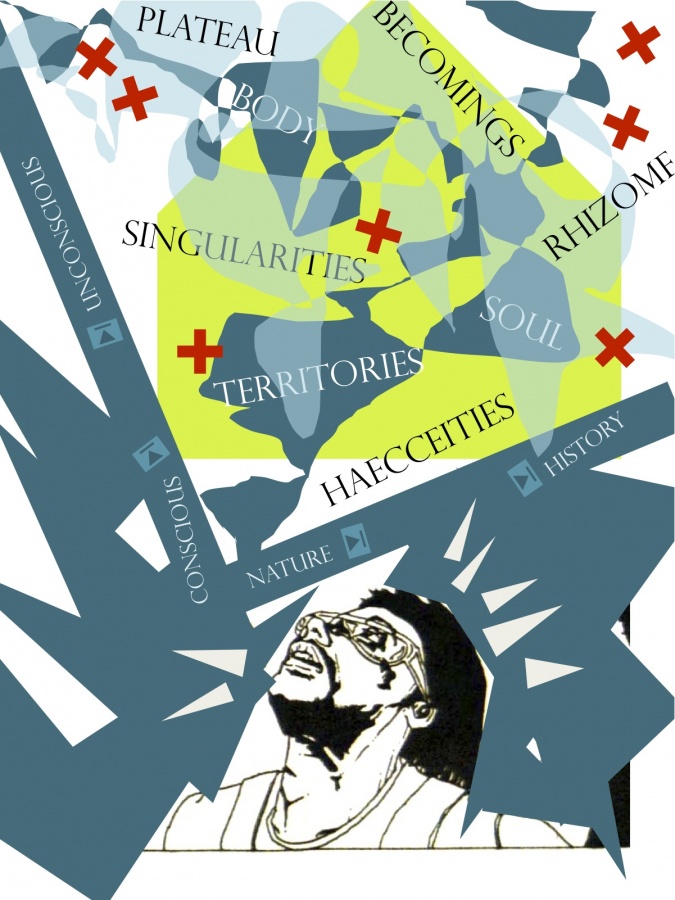11 june 2012
Wolf Man's Thousand Plateaus
This Deleuze-inspired Lit Graph charts the ideas of the French philosopher in amorphous territories, to mirror his own thinking. Deleuze’s ideas have been widely read for their relevance to contemporary literary theory, and ways of looking at the text as construct. The quote I chose as the premise for this piece is an extract from the preface to Deleuze’s "A Thousand Plateaus": “Multiplicities cannot be reduced to the distinction between the conscious and the unconscious, nature and history, body and soul. Multiplicities are reality itself. They do not presuppose unity of any kind, do not add up to a totality, and do not refer to a subject. Subjectivations, totalizations, and unifications are in fact processes which are produced and appear in multiplicities. The main features of multiplicities are: their elements, which are singularities; their relations, which are becomings; their events, which are haecceities (in other words, subjectless individuations); their space-time, which is smooth spaces and times; their model of actualization, which is the rhizome (as opposed to the tree as model); their plane of composition, which is a plateau (continuous zones of intensity); and the vectors which traverse them, constituting territories and degrees of deterritorialization. In this light, universal history assumes a much greater variety. The question in each case is: Where and how does each encounter come about?”
 Poetry
Poetry Prose
Prose Photography
Photography Graphics
Graphics Video poems
Video poems Postcards
Postcards Diary
Diary Books
Books Handmade
Handmade